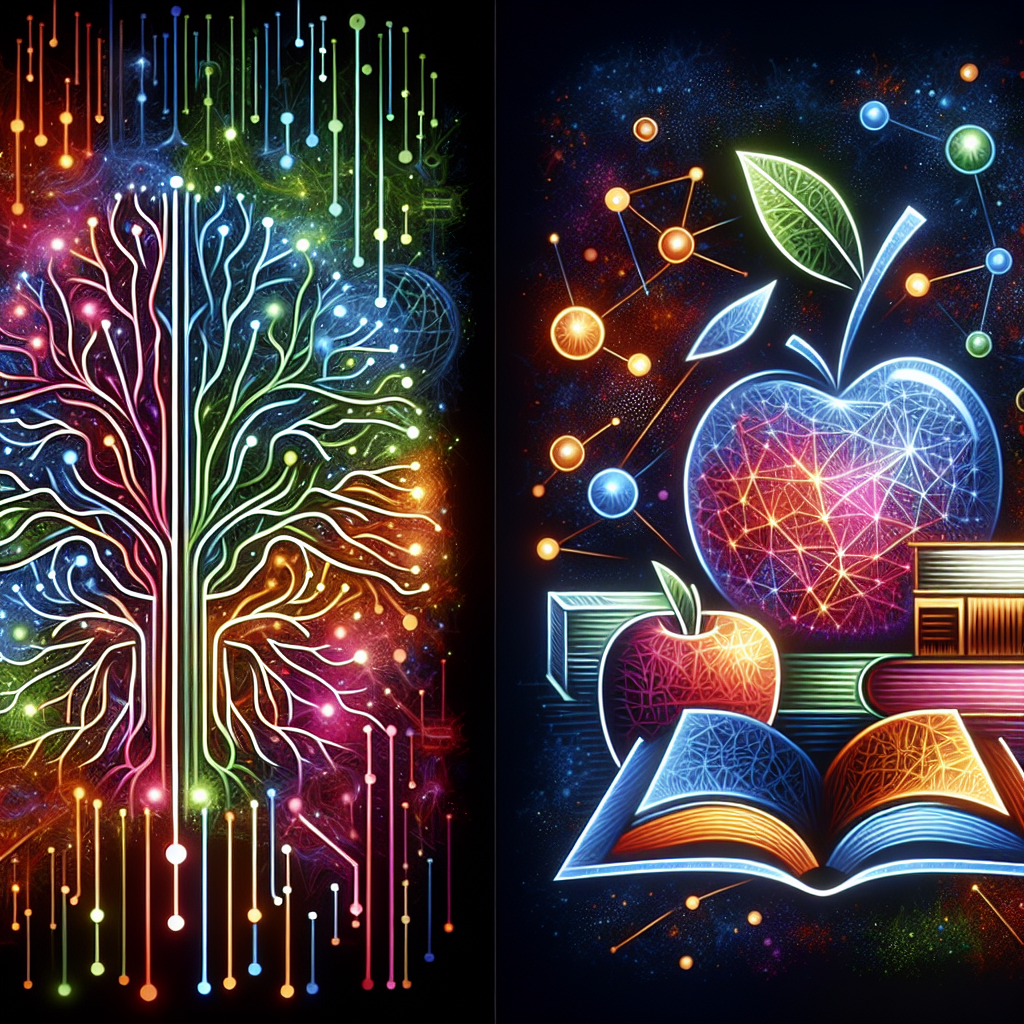Artificial General Intelligence (AGI) is a term that refers to the development of machines that possess the ability to understand, learn, and apply knowledge across a wide range of tasks, similar to humans. With the rapid advancements in artificial intelligence (AI) technology, AGI has become a topic of great interest and debate in various fields, including education. In this article, we will explore how AGI is reshaping the future of education and the implications it has on the way we learn and teach.
The Impact of AGI on Education
The integration of AGI into education has the potential to revolutionize the way students learn and teachers teach. Here are some of the ways AGI is reshaping the future of education:
Personalized Learning: AGI has the capability to analyze vast amounts of data to create personalized learning experiences for students. By understanding each student’s strengths, weaknesses, and learning styles, AGI can tailor educational content and activities to meet the individual needs of each student, leading to more effective learning outcomes.
Adaptive Tutoring: AGI-powered tutoring systems can provide real-time feedback and guidance to students as they navigate through educational materials. These systems can adapt to the student’s pace and level of understanding, providing additional support and resources when needed. This personalized approach to tutoring can help students improve their academic performance and enhance their overall learning experience.
Automated Grading: AGI can automate the grading process, saving teachers valuable time and allowing them to focus on providing meaningful feedback to students. By analyzing student responses and providing instant feedback, AGI can help students identify areas of improvement and track their progress more effectively.
Enhanced Collaboration: AGI can facilitate collaboration among students and teachers by providing tools and platforms that enable seamless communication and sharing of resources. AGI-powered chatbots and virtual assistants can assist students with homework assignments, research projects, and other educational tasks, fostering a more collaborative and engaging learning environment.
Future of Education: How AI is Reshaping Learning
As AGI continues to evolve, the future of education will be significantly transformed by AI technology. Here are some key trends that are shaping the future of learning:
1. Personalized Learning Experiences: AGI-powered platforms will offer personalized learning experiences that cater to the unique needs and preferences of each student. By analyzing data on student performance, engagement, and interests, AGI can create customized learning pathways that optimize the learning process and improve student outcomes.
2. Lifelong Learning: AGI will enable individuals to engage in lifelong learning by providing access to a wide range of educational resources and opportunities. With the rise of online learning platforms and AI-powered tutoring systems, individuals can acquire new skills and knowledge at their own pace and convenience, regardless of their age or background.
3. Collaboration and Connectivity: AGI will foster collaboration and connectivity among students, teachers, and educational institutions. By leveraging AI technology, students can collaborate on projects, share resources, and engage in virtual classrooms, breaking down traditional barriers to learning and fostering a more inclusive and interactive learning environment.
4. Enhanced Teaching Practices: AGI will empower teachers to enhance their teaching practices by providing them with valuable insights and resources to improve student engagement and performance. By leveraging AI-powered tools and platforms, teachers can personalize instruction, assess student progress, and provide targeted interventions to support student learning.
5. Ethical and Social Implications: As AI technology becomes more integrated into education, there will be important ethical and social implications to consider. It is crucial to address issues related to data privacy, bias, and transparency to ensure that AI-powered educational systems are fair, equitable, and beneficial for all students.
FAQs:
1. Can AGI replace teachers in the classroom?
While AGI has the potential to enhance teaching practices and support student learning, it is unlikely to replace teachers entirely. Teachers play a crucial role in facilitating learning, providing mentorship, and fostering social and emotional development in students. AGI can complement teachers by providing valuable insights and resources to support their instructional practices.
2. How can AGI improve educational equity and access?
AGI-powered platforms can help address educational inequities by providing personalized learning experiences and resources to students from diverse backgrounds. By analyzing data on student performance and engagement, AGI can identify and address gaps in learning, providing targeted interventions to support students who may be at risk of falling behind. Additionally, AGI can expand access to educational resources and opportunities for individuals who may not have access to traditional educational institutions.
3. What are the challenges of integrating AGI into education?
There are several challenges to consider when integrating AGI into education, including concerns related to data privacy, bias, and accountability. It is important to establish clear guidelines and regulations to ensure that AI-powered educational systems are ethical, transparent, and fair. Additionally, there may be resistance from educators and stakeholders who are hesitant to embrace new technologies and change traditional teaching practices.
4. How can educators prepare for the future of education?
Educators can prepare for the future of education by staying informed about the latest developments in AI technology and exploring ways to integrate AI-powered tools and platforms into their teaching practices. By embracing lifelong learning and professional development opportunities, educators can enhance their skills and adapt to the changing landscape of education. Collaboration with technology experts and educational researchers can also help educators navigate the complexities of AI integration and leverage AI technology to enhance student learning outcomes.
Conclusion:
AGI has the potential to reshape the future of education by providing personalized learning experiences, adaptive tutoring, automated grading, and enhanced collaboration opportunities for students and teachers. As AI technology continues to advance, it is crucial to consider the ethical and social implications of integrating AGI into education and to address challenges related to data privacy, bias, and accountability. By leveraging AI technology responsibly and ethically, educators can harness the power of AGI to enhance teaching practices, improve student outcomes, and foster a more inclusive and engaging learning environment for all.

